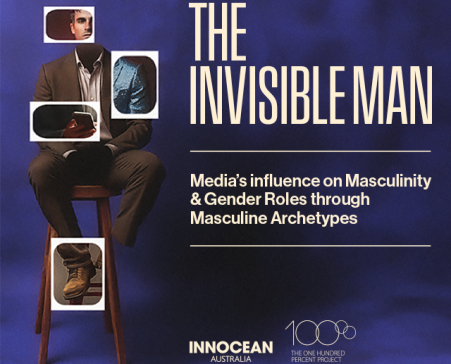Diversity of Thought Blog
“Should the focus be on leadership rather than gender?”

Kat Stevenson & Tim Scholefield
“Leadership is not about titles, positions or flowcharts. It is about one life influencing another” – John C Maxwell
“Leadership is not a gene and it’s not an inheritance. Leadership is an identifiable set of skills and abilities that are available to all of us” – James Kouzes and Barry Posner
Summary
- The behaviours that successful leaders exhibit incorporate attributes that are both stereotypically female (communal) and male (agentic).
- By focussing on what makes a successful (good) leader, we can change the conversation away from one of gender to one of leadership.
- Doing so is not a panacea on its own because gender re-enforcing language and stereotypes are so pervasive.
In our last research insights Caroline and Anna discussed recent research that confirmed the “stickiness” of gender stereotypes around agentic (considered male) and communal (considered female) traits. The research indicated that though men and women are equally competent in leadership roles, a lack of conscious awareness of occupational segregation is prevalent. In other words, women tend to work in roles that reinforce communal traits (e.g., healthcare and education) reinforcing the stereotype that women are more communal. In male-dominated occupations (e.g., law, engineering), women tend to be placed in roles that reward communal behaviour (e.g., human resources). Men tend to dominate in roles where agency (decision-making, assertiveness) is seen as a prerequisite such as C-suite or middle management.
In this article we question whether the challenge is one of gender stereotyping, leadership stereotyping (or both) and how words and language impact the status quo whether intentional or not.
Articles and Research
In her article “What Do Countries With The Best Coronavirus Responses Have In Common? Women Leaders1”, rather than assessing effective leadership in and of itself, Aviva Wittenberg-Cox attributes the traits exhibited by successful female leaders during the current crisis to a uniquely female style. We are told that countries with leaders exhibiting traits such as truth, decisiveness, embracing of technology and love have had the best coronavirus responses – and they are led by women. “These leaders are gifting us an attractive alternate way of wielding power”, instead of those of “strongmen using the crisis to accelerate a terrifying trifecta of authoritarianism” “(Trump, Bolsonaro, López Obrador, Modi, Duterte, Orban, Putin, Netanyahu…)”
The article does not comment on other aspects that may drive a countries success in combating the pandemic including bipartisanship across the political spectrum and support of other persons/organisations which may be male dominated. Nor does it reflect on countries led by males which have also successfully (to date) navigated the challenge. The inference from the article is:
- These are good leadership traits.
- Countries led by leaders exhibiting these traits have performed well in the pandemic.
- These countries are led by women.
- Women are good leaders.
It may be informative to highlight the success of female leaders and challenge the “Think Leader, Think Male” stereotype by associating successful leadership traits to those of a gender through a correlative, subjective assessment. The danger is this can continue to perpetuate a dichotomy of gendered leadership in which one is “good” so the other must be “bad”. More helpful would be to assess the behaviours of successful leaders independently and then celebrate those in any leaders, regardless of their gender.
| Servant leaders prioritise their team (and wider community) and empower them to do the best they can. This is in contrast to traditional notions of leadership: commanding and goal-focused. |
In his article “Women Are Natural Servant Leaders, But Need Encouragement To Take On The Role2”, Adi Gaskell reports on research undertaken by Lemoine and Blum3 that servant leadership’s effects on outcomes are stronger when implemented by women; employees generally prefer working under such a leader, and their performance improves as a result.
The data reveals that servant leaders not only inspire greater performance from their team, but also encourage servant leadership qualities in team members. Women leaders prove more effective in this than their male peers. “As followers began acting like servant leaders, they became more engaged, proactive and productive – and women were better than men at sparking that change”.
Whilst the impact of stronger servant leadership could be felt across all sectors, the authors concede that the benefits of servant leadership could be, and suggest that perhaps they ought to be, weighed more towards industries such as healthcare and education which are heavily people-centric. These are areas where there are more women working than men, yet the overrepresentation of men at higher levels of leadership persists. If there are already more “naturally strong” female servant leaders in these industries, why are they not adequately represented in the upper echelons of its leadership? Is the answer, as the authors suggest, targeted servant leadership training aimed at women in these workforces? What value might this targeted training bring to a group who are already “natural servant leaders”?
The inference from the article is:
- Servant leaders are good.
- Women are more effective servant leaders than men.
- Women are good leaders.
On the surface, this notion seems benign enough, even positive. If women have a “natural” talent for a certain type of leadership, surely this should be encouraged so that, in the words of the authors, “[leadership] stereotypes finally give women an edge”. However, women may be better servant leaders not only because of genetics, but because of historical, social and cultural norms that reinforce an expectation.
In the final article we reviewed, Smith et al. The Power of Language: Gender, Status, and Agency in Performance Evaluations4, the authors investigate whether gender bias and reinforcement of stereotypes in leader performance evaluations may hinder women’s career aspirations and retention as well as limit their ability to be promoted. The authors explore the gendered assignment of leader attributes with particular attention paid to associations of agentic competence (deficiency for women) and agentic dominance (penalty for women) across peer evaluations of U.S. Naval Academy students.
As the men and women studied are broadly similar with respect to academic standards, physical standards, and military standards, it was expected that, in the absence of biases and stereotypes about who a leader is “supposed” to be, similar evaluations would be seen.
What was found is that women leaders relative to male leaders are evaluated with:
- a greater variety of proscriptive leadership attributes – generally negative qualities that reinforce who we should be or how we should behave.
- a limited variety of descriptive leadership attributes – generally positive qualities that reinforce who we should not be and how we should not behave.
Not only are women penalised for violating the gender status hierarchy (relative values associated with each gender) by being evaluated with more proscriptive attributes, they are also penalised with fewer types of individual descriptive attributes – thereby arguably re-enforcing an agentic (male) – communal (female) dichotomy.
The paper in part concludes “even in esteemed institutions such as military service academies with a reputation for producing leaders of character to serve a nation, gender status beliefs are pervasive.”
The inference from the paper is:
- Leadership attributes are stereotypically male (agentic) and female (communal).
- When female leaders challenge theses stereotypes, they are penalised.
- When violating gender status hierarchies discrimination is more likely to occur regardless of competence.
Given that men represent 84% of the US active duty forces it is likely that men made up most of the evaluators and this may contribute to women leaders’ negative performance evaluations particularly if gender stereotypes for military women are inconsistent with expectations for military leaders.
It is also unclear from the research whether men exhibiting more/higher communal traits relative to their peers were also discriminated against in the reviews.
Summary
Looking at the research/articles collectively the prevailing message appears to be:
- This is what good leadership looks like.
- Women are more likely to exhibit communal and servant leadership traits than men.
- Communal leadership traits are valued less highly than agentic traits. But when women exhibit agentic traits, they are penalised regardless of competency.
In other words, as summarised by Eagly and Koenig5 “Women thus face a double bind: When they conform to feminine stereotypes and behave communally, they are perceived as weak leaders. When they conform to stereotypes of “good leaders” and behave agentically, they are penalised for bucking gender norms”.
So What?
How can we change the paradigm about what represents “good leadership” and encourage individuals (women and men) to embrace their natural leadership styles without continuing to reinforce a stereotyped status quo that elevates agentic (considered male) traits above communal (considered female) traits?
There is strong evidence that leadership which includes attributes that are identified as both communal and agentic results in better outcomes within organisations and more broadly. Leaders therefore benefit from having a “toolkit” that is neither agentic nor communal, but both. After all, as the adage goes “if the only tool you have is a hammer then everything is a nail”.
By focussing on what makes a successful leader and embracing (demanding) the necessity to have elements of both stereotypically male and female leadership styles, we can change the conversation away from one of gender to one of leadership, focussing on the individual, regardless of gender (or any other stereotype).
We are not suggesting that to do so is a panacea. As all the articles demonstrate, gender re-enforcing stereotypes including language are pervasive. Both women and men can have the same competencies and qualities yet still be perceived differently. Continuing to develop awareness (in self and others) of this and its impacts remains an important task.
After all, having all the tools in your toolkit is only part of the solution. Discerning under what circumstances to use which tool is a skill which also needs to be mastered.
We encourage you to continue the conversation by taking this article into your organisations and discussing the opportunities and challenges it raises.
References
- Wittenberg-Cox, A., 2020. What Do Countries With The Best Coronavirus Responses Have In Common? Women Leaders. https://www.forbes.com/sites/avivahwittenbergcox/2020/04/13/what-do-countries-with-the-best-coronavirus-reponses-have-in-common-women-leaders/?utm_source=newsletter&utm_medium=email&utm_campaign=discuss&utm_campaign=discuss&utm_campaign=discuss&utm_campaign=discuss&utm_campaign=discuss&cdlcid=5d434352195063fa4f6ae04d#6f9277c63dec
- Gaskell, A. 2020. Women Are Natural Servant Leaders, But Need Encouragement To Take On The Role https://www.forbes.com/sites/adigaskell/2020/02/25/women-are-natural-servant-leaders-but-need-encouragement-to-take-on-the-role/?utm_source=newsletter&utm_medium=email&utm_campaign=discuss&utm_campaign=discuss&utm_campaign=discuss&utm_campaign=discuss&cdlcid=5d434352195063fa4f6ae04d#37f47f183745
- Lemoine, J.G., and Blum, T.C. 2019. Servant leadership, leader gender, and team gender role: Testing a female advantage in a cascading model of performance. Personnel Psychology. https://onlinelibrary.wiley.com/doi/epdf/10.1111/peps.12379
- Smith, D.G., Rosenstein, J.E., Nikolov, M.C., and Chaney, D.A. 2018. The Power of Language: Gender, Status, and Agency in Performance Evaluations. Published online: 3 May 2018. https://doi.org/10.1007/s11199-018-0923-7
- Eagly, A. and Koenig, A. 2014. Research Reveals How Stereotypes About Leadership Hold Women Back. https://footnote.co/research-reveals-how-stereotypes-about-leadership-hold-women-back/#:~:text=In%20particular%2C%20people%20associate%20leadership,stereotypically%20feminine%20communal%20traits%20like%20%E2%80%9C

